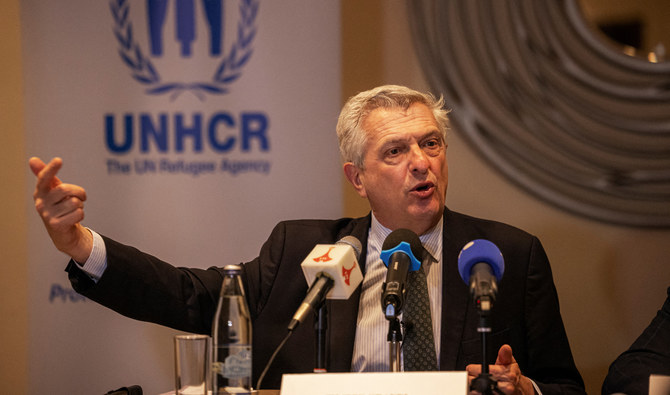NAIROBI: Europe may have to deal with a new flow of Sudanese migrants if a ceasefire agreement isn’t signed soon between Sudan’s warring sides and relief efforts aren’t strengthened, the head of the United Nations refugee agency said Monday.
“The Europeans are always so worried about people coming across the Mediterranean. Well, I have a warning for them that if they don’t support more refugees coming out of Sudan, even displaced people inside Sudan, we will see onward movements of people toward Libya, Tunisia and across the Mediterranean,” Filippo Grandi said. ”There is no doubt.”
More than 9 million people are thought to be internally displaced in Sudan, and 1.5 million refugees have fled into neighboring countries in 10 months of clashes between the Sudanese military, led by Gen. Abdel Fattah Al-Burhan, and the Rapid Support Forces, a powerful paramilitary group commanded by Gen. Mohammed Hamdan Dagalo.
The conflict erupted last April in the capital, Khartoum, and quickly spread to other areas of the country.
Grandi said several countries neighboring Sudan — Chad, Central African Republic, South Sudan and Ethiopia — have their own “fragilities” and will be unable to give refugees enough assistance.
He said refugees will move further toward northern counties like Tunisia, where some have been documented planning to cross to Europe.
“When refugees go out and they don’t receive enough assistance, they go further,” Grandi said.
He said the war in Sudan is becoming fragmented, with a number of militias controlling areas. “Militias have even less hesitation to perpetrate abuse on civilians,” he said, suggesting that it would create even more displacement.
Grandi also said conflicts in places like Sudan, Congo, Afghanistan and Myanmar should not be overlooked during the wars in Ukraine and Gaza.
“Gaza is a tragedy, it needs a lot of attention and resources, but it cannot be at the expense of another big crisis like Sudan,” he said.
Grandi spoke a day after visiting Sudan and Ethiopia, which is recovering from a two-year conflict in its northern Tigray region.
The United Nations says at least 12,000 people have been killed in Sudan’s conflict, although local doctors groups say the true toll is far higher.
Dagalo’s paramilitary forces appear to have had the upper hand over the past three months, with their fighters advancing to the east and north across Sudan’s central belt. Both sides have been accused of war crimes by rights groups.
Regional partners in Africa have been trying to mediate an end to the conflict, along with Saudi Arabia and the United States, which facilitated several rounds of unsuccessful, indirect talks between the warring parties. Al-Burhan and Dagalo are yet to meet in person since the conflict began.






















